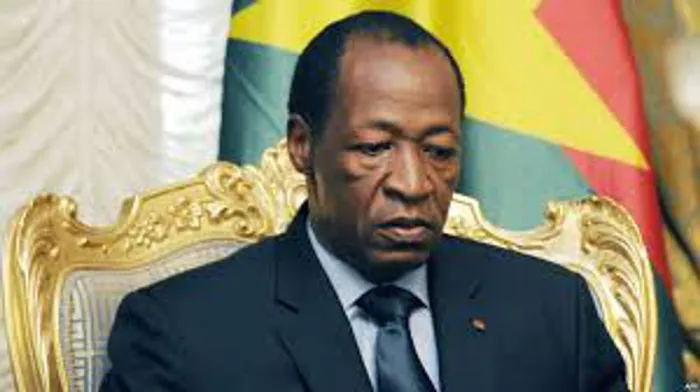Burkina coup blights the African Spring

Blaise Campaore Blaise Campaore
Peter Fabricius
The coup in Burkina Faso is a great setback to democracy not only there, but elsewhere in Africa. The Burkinabé people came out on the streets of Ouagadougou in their tens of thousands in October 2014 to prevent President Blaise Compaoré changing the constitution to extend his 27-year rule. Democrats elsewhere hailed Burkina Faso as an inspiration.
Several other leaders were scheming to manipulate their countries’ constitutions to cling to power, and the popular overthrow of Compaoré was widely seen as a warning to them that they, too, could confront an “African Spring”.
Last week’s coup dashed such hopes. The powerful, elite presidential guard, which Compaoré had created to suppress or destroy his enemies, seized power just two days after the transitional government proposed to disband it.
Whether Compaoré himself was behind the coup is not clear. But in any case, his old regime is back in power. Cynthia Ohayon, of the International Crisis Group, says the coup “is a major setback for Burkina Faso and the region”.
“This will be used as an argument by autocratic leaders to show that when they leave power, instability automatically follows.” Those leaders are the most to blame for the chaos which often follows them because they aspire to be presidents for life and so establish no succession plans. Mugabe is another fine example.
It’s hard to see what could restore order and democracy in Burkina Faso now. The AU has suspended the membership of the new government. It has also threatened an asset freeze and a travel ban against the coup leaders if they don’t relinquish power by this week.
But those sanctions might not weigh very strongly with the presidential guard against the much larger material and other rewards of remaining in power.
Rescinding the proposed disbanding of the presidential guard might persuade it to return to barracks. But by doing that, the transitional government would be submitting to blackmail, leaving the menacing guard in place with an effective veto right over everything the civilian governments does.
This is surely the least negotiable of the guard’s demands. The transitional government could more easily reverse its decision to bar Compaoré’s closest allies from running for office again next month.That was probably an unwise decision tactically. But that concession by itself would be unlikely to persuade the presidential guard to relinquish power. And the Ouagadougou “street” might not allow it anyway.
What exactly the impact of this setback will be elsewhere is also not yet clear. Burundi’s President Pierre Nkurunziza defied the Burkinabé African Spring warning, anyway, when he changed his country’s constitution in April to run, successfully, for a third term.
Across Africa, the prevailing “Hopeless Continent” narrative of 2000 has given way to the “Africa Rising” one. That has largely been because of faster economic growth, much of it spurred by China’s demand for commodities. Politically, though, Africa has not really changed. The NGO Freedom House, which tracks democracy and political liberty across the world, rated nine African countries as “free” in 2000; 26 as “partly free”, and 18 as “not free”.
It rated 11 as “free” in 2014 – a small improvement; but at the same time the number of “partly free” nations dropped to 19, while the number of “not free” countries rose to 24. (South Sudan, created during the interval, was one of the latter.)
As Burkina Faso once again depressingly illustrated last week, democracy on this continent remains very fragile, while the old autocratic power systems are deeply entrenched and very hard to uproot.